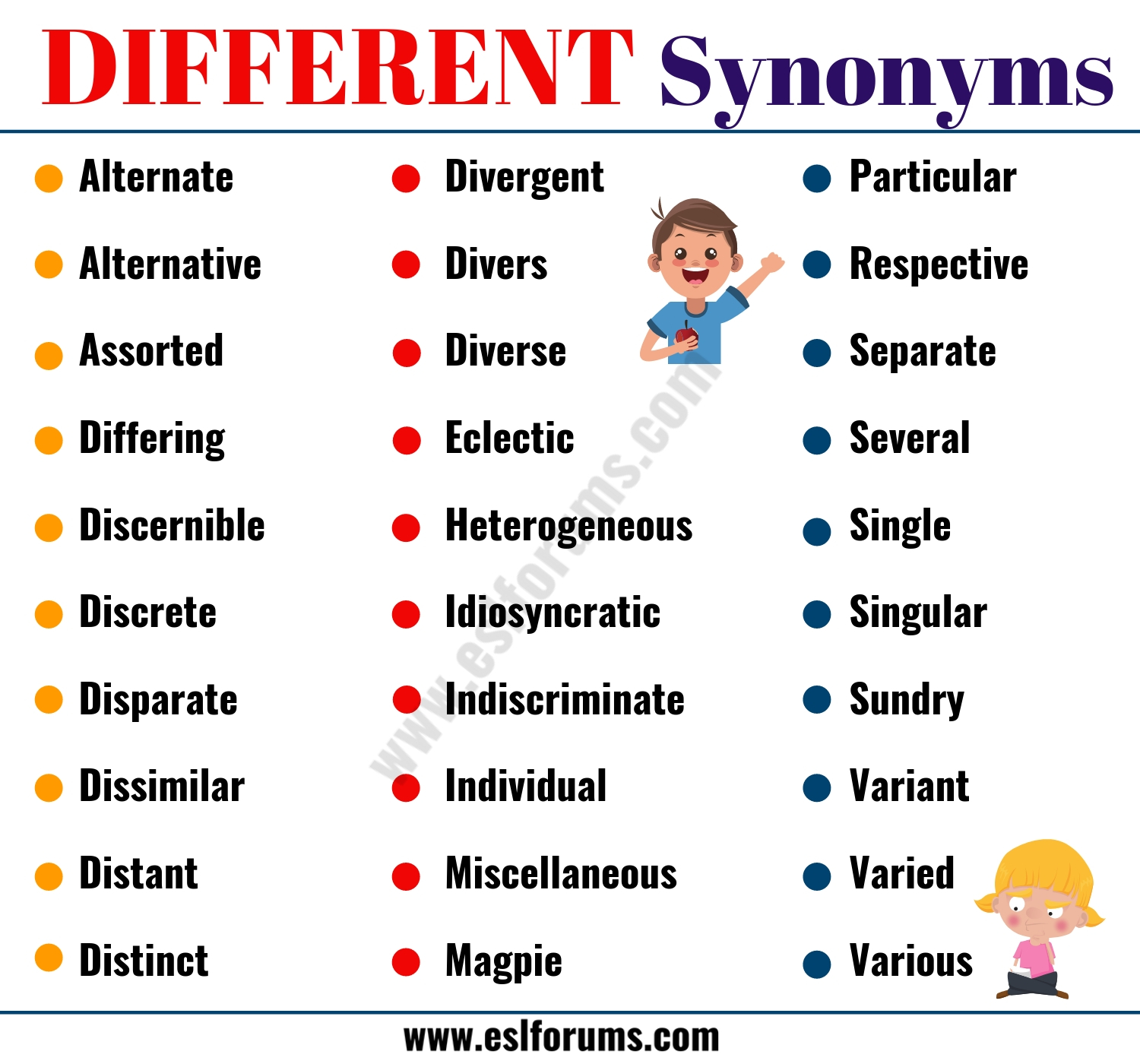Understanding The Rise Of A Popularized Synonym: How Words Find Their Moment
Have you ever noticed how some words just seem to catch on, becoming the go-to choice for something you used to say a different way? It's a rather common thing, you know, this shift in how we speak. We often find ourselves using a new word, or a word that's been around but suddenly gets a fresh burst of energy, to describe something familiar. This is what we mean when we talk about a popularized synonym, and it's quite a fascinating part of language.
It's like, in a way, how you might look for the current DAX performance or historical trends to get a full picture of the market; understanding how certain words gain favor gives you a much clearer picture of language itself. Just as you want to know all the details about stocks, courses, charts, and news, knowing about these word shifts helps you grasp the bigger story of communication. It's a bit like having a resource for tutorials in introductory physics, where you get detailed information to walk you through a process step by step, helping you understand how concepts relate.
So, we're going to explore what makes a synonym become the popular choice, why it matters, and how these linguistic changes happen all around us. It's truly a dynamic process, and you might be surprised at just how often it occurs.
Table of Contents
- What Exactly Is a Popularized Synonym?
- Why Do Synonyms Become Popular? The Forces at Play
- How Popularized Synonyms Spread Through Our Talk
- Impact on Our Everyday Talk
- Noticing the Shift in Words
- Frequently Asked Questions About Popularized Synonyms
- Looking Ahead in Language
What Exactly Is a Popularized Synonym?
A popularized synonym is, you know, a word that already means something similar to another word, but for some reason, it starts to get used much more often. It becomes the preferred way to say something. Think about it: we have many words that mean almost the same thing. Yet, one of them will, over time, gain a lot more traction. It's not that the older word goes away completely, but its newer counterpart just takes center stage.
This happens quite naturally, you see. It's a word that, while having a similar meaning to others, gains significant public favor. It comes to be the word most people choose when they want to express a particular idea. This is different from slang, by the way, which often stays within a specific group or time. A popularized synonym tends to spread more widely and stay around for a good while, too.
It's a process that shows how alive language truly is. Words are always moving, always changing their standing in our daily conversations. It's a bit like how the concepts of displacement, velocity, and acceleration build on each other in physics; words also build on each other, with some becoming more prominent over time.
Why Do Synonyms Become Popular? The Forces at Play
So, why does one word get picked over another, even if they share a meaning? There are, you know, many reasons for this. It's not usually just one thing that makes a synonym become the popular choice. It's often a mix of social currents, new ideas, and how people communicate.
Cultural Shifts and Social Currents
Sometimes, a word becomes popular because it just, you know, fits a new way of thinking or a new social trend. As society changes, our language often changes with it. A word might carry a slightly different feeling or a more modern tone than its older counterparts. This can make it feel more relevant to people right now.
For example, a word might feel less formal or more inclusive, which could be something a culture values more at a certain time. It's like a general shift in public sentiment, and language follows along. This is, you know, a very strong force in how words gain favor.
Technological Advances and New Ideas
New technologies or new ways of doing things often bring new words, or they give old words new life. A word that was hardly used might suddenly become the perfect fit for a new invention or a new concept. Think about how many words we use now that are tied to the internet or digital communication.
These new ideas often need words to describe them, and sometimes an existing synonym, rather than a brand new word, just steps up to fill that role. It's a bit like how we get new tools for certain tasks, and those tools become the standard. This is, you know, a very common way for words to get a popularity boost.
The Influence of Media and Public Figures
What we hear and read, especially from popular sources, has a big impact on the words we use. News reports, television shows, movies, and people with a lot of followers on social media can really, you know, make a word take off. If a well-known person or a widely read publication starts using a particular synonym, others often pick it up.
It's a kind of ripple effect. People hear it, they like how it sounds or how it feels, and they start using it themselves. This is, you know, a powerful way for words to spread quickly through the general population.
The Desire for Novelty or Precision
Sometimes, people just want to say things in a new way. There's a natural human tendency to seek out freshness in expression. An older word might feel a bit stale, and a synonym offers a way to refresh our language. Or, it could be that a particular synonym offers a slightly more precise meaning, a nuance that other words just don't quite capture.
This desire for just the right word, or a word that feels a bit more interesting, can drive a synonym to become much more popular. It's a very human thing, to want to communicate with a bit more flair or accuracy.
How Popularized Synonyms Spread Through Our Talk
Once a synonym starts to gain some favor, it typically spreads in a few ways. It's not like, you know, a sudden explosion; it's more of a gradual process, but it can pick up speed.
First, people hear it from those they respect or from sources they pay attention to. This could be friends, family, teachers, or, you know, media personalities. Then, they start to try it out themselves. It feels good to use a word that sounds current or fits a particular mood.
As more people use it, it becomes more familiar. This familiarity makes it feel more natural to others, and so the cycle continues. It's a bit like how financial news spreads, you know, from one person to another, influencing decisions. The word just becomes part of the common vocabulary, almost without anyone really thinking about it.
Think about how some phrases become common in, say, financial news. The "DAX performance index" with info on volatility and news, for instance, becomes a standard way to talk about something specific. Similarly, a popularized synonym becomes a standard way to express an idea.
Impact on Our Everyday Talk
The rise of a popularized synonym can, you know, change how we communicate in small but meaningful ways. It can make our language feel more current and vibrant. It can also, at times, make older words feel a bit outdated, though they usually don't disappear entirely.
These shifts show how language is always adapting to the needs of its speakers. It's a living thing, always moving, always finding new ways to express ideas. This process helps keep our communication fresh and relevant to the times we live in.
It's like having a range of investment options, you know, stocks, ETFs, funds, commodities, bonds, certificates. Each has its place, but some might become more popular depending on market conditions. Similarly, different words come into favor depending on what's happening in the world.
Noticing the Shift in Words
How can you, you know, spot a popularized synonym in action? Pay attention to the words people around you are using. Are there certain terms that seem to be popping up more often in conversations, in articles, or on social media?
Consider if there's an older word that used to be the primary choice for that meaning, but now seems to be used less frequently. This is, you know, a pretty good sign that a synonym has gained traction.
You can also, you know, look at how language is used in various fields. Just as you find "Einzelwerte zu allen wichtigen aktien, wertpapieren und indizes" in finance, you can see specific words gaining prominence in different areas of discussion. This kind of observation helps you understand the flow of language.
It's a bit like tracking the course development of the DAX index today, you know, to see its current movement and performance. You're observing the dynamic changes in real time. For more on how language changes, you could look at resources on linguistic evolution.
Frequently Asked Questions About Popularized Synonyms
What does it mean for a word to be "popularized"?
When a word gets "popularized," it means it starts to be used by a lot more people, you know, becoming a common choice in everyday talk. It moves from being just one option among many to being the one most folks pick. It gains a broad acceptance across many different groups.
How do new words get added to common speech?
New words, or new uses for old words, get into common speech through a mix of things, you know. They might come from new technologies, cultural shifts, media influence, or just a desire for fresh expression. People hear them, start using them, and then they just, you know, become part of the general way of talking.
Are "popularized synonyms" the same as slang?
No, not really, you know. While both can be new or trendy, slang often stays within certain groups or is very short-lived. A popularized synonym tends to spread much wider and usually sticks around for a longer time, becoming a more permanent part of the general language. It gains a wider acceptance.
Looking Ahead in Language
Understanding how a popularized synonym comes about gives us, you know, a better sense of how language works. It's not a fixed thing, but something that breathes and changes with us. As time goes on, you can be sure that new words will rise to prominence, and others will, perhaps, fade a bit into the background.
It's an ongoing story, really, this journey of words. We're always, you know, adding to it, whether we realize it or not. To learn more about language trends on our site, and link to this page our latest articles on word usage.
So, keep an ear out for those words that are, you know, just starting to make their mark. It's a pretty cool thing to watch happen.
This article was last updated on 2024-05-16.
Just as you might find all the lecture notes, summaries, and study guides you need on Studocu to pass your exams with better grades, we hope this piece gives you a fuller picture of how words gain their moment.
We work to give you detailed information to walk you through the process step by step, just like our resource for physics includes answers to chapter exercises, as well as solutions to over 1,000 physics problems.
It's about having that clear picture, you know, whether it's about the DAX or the subtle shifts in our everyday words.
The science of physics, in a way, shows us how systems change and adapt, and language is very much a system that does the same.
So, you know, keep an eye on how words are used around you.
It's a subtle but constant movement, this word popularity.
And that, you know, is how words find their moment in the sun.
It's a very active process.
You might even find yourself using one without realizing it.
That's just how it works, you know.
Language is always moving forward.
It's a pretty neat thing to observe.
And so, the story of words continues.
It's truly, you know, a dynamic force.
We are all part of it.
Every single day.
It's a pretty big deal.
Think about it.
Words, they have a life of their own.
And we give them that life.
So, you know, it's a shared effort.
This word thing.
It's quite something.
You see.
It just keeps going.
That's how it is.
Always new words.
Always new favorites.
It's a constant flow.
Really.
So, you know, keep learning.
About words.
It's worth it.
Very much so.
It opens up, you know, new ways to see things.
This language journey.
It's pretty cool.
It's always changing.
Just like everything else.
So, you know, enjoy the ride.
Of words.
And their stories.
It's a lot of fun.
To think about.
How they come and go.
Or stay.
It's just, you know, part of life.
This word thing.
It's a big part.
Of how we connect.
With each other.
And that, you know, is pretty special.
So, keep talking.
And listening.
To the words around you.
They tell a story.
Of now.
And of what's to come.
It's a very neat thing.
To think about.
This constant dance of words.
And their meanings.
So, you know, that's the story.
Of popularized synonyms.
For today.
And it keeps going.
Always.
You know.
It's a journey.
Not a destination.
With words.
And their shifts.
So, you know.
Keep your eyes open.
And your ears ready.
For the next one.
It's out there.
Waiting.
To become.
The next big word.
For a bit.
Anyway.
It's a constant thing.
This language.
Always moving.
Always growing.
And changing.
With us.
So, you know.
That's pretty cool.
To be part of.
This living thing.
Our words.
And their journey.
It's a big deal.
For all of us.
Really.
So, you know.
Keep that in mind.
As you speak.
And listen.
Every day.
It's a word party.
And we're all invited.
So, you know.
Enjoy it.
The ever-shifting world.
Of language.
It's a lot of fun.
To be part of.
That, you know, is the truth.
About words.
And their stories.
They are always, you know, telling us something new.
About ourselves.
And our world.
So, you know.
Keep exploring.
The words.
Around you.
It's a very rewarding thing.
To do.
That, you know, is for sure.
So, you know.
Keep your eyes peeled.
For those words.
That are just, you know, starting to get noticed.
They are everywhere.
If you look.
And listen.
Very carefully.
It's a subtle thing.
But it's always happening.
This change.
In words.
And how we use them.
So, you know.
That's the big picture.
For today.
About popularized synonyms.
And their journey.
It's a truly, you know, remarkable thing.
To be part of.
The living language.
We all share.
So, you

Synonym - выполняем тестнет с прицелом на дроп - INCRYPTED

DIFFERENT Synonym: List of 40 Synonyms for DIFFERENT with Examples

Regaled Synonym